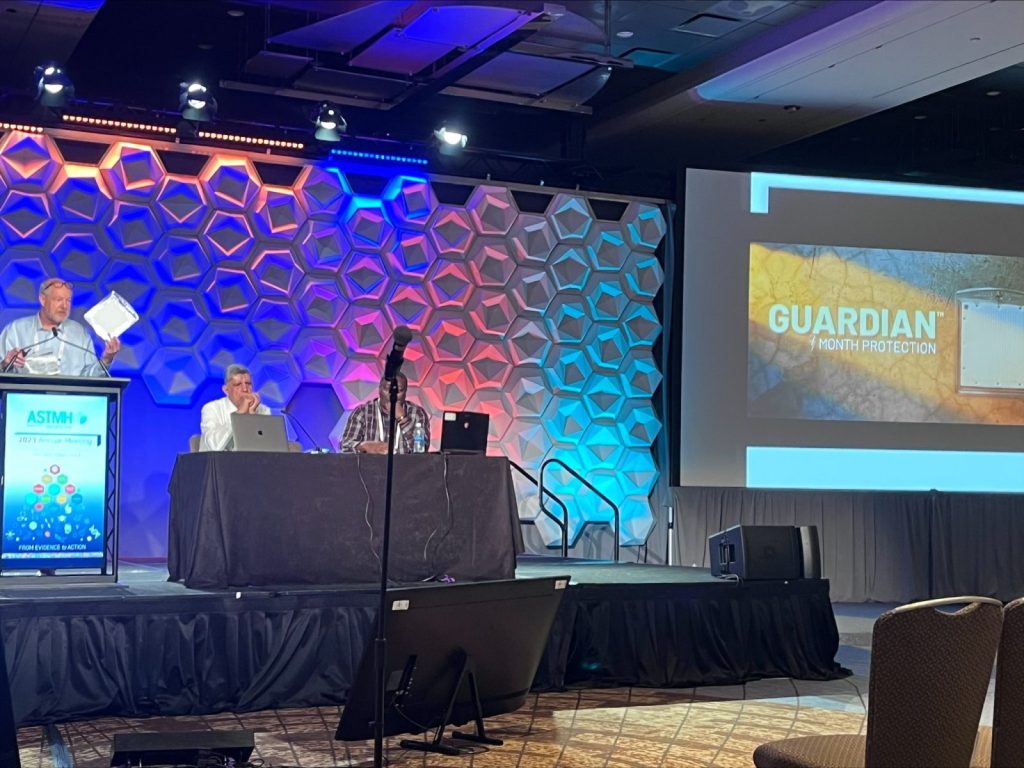“We urgently need new disease control tools approved to effectively protect people from multiple disease-carrying vectors,” said Richard Allan during his talk at American Society of Tropical Medicine and Hygiene (ASTMH) last week where he presented the results from the trial of SC Johnson innovative spatial repellent, Guardian. The presentation was titled: Gaining control of invasive urban disease vectors: First Results from a field trial in Aden, Yemen.
Initial analysis of the results from the trial in Internally Displaced Person camps in Yemen show a 75% reduction in mosquito vectors such as Aedes Aegypti. In an earlier trial in Syria there was a 48% reduction in leishmaniasis using the spatial repellent and managing water sources.
Richard said: “We should remember that when talking about new tools such as Guardian being used in Yemen, we are not talking about replacing or competing with existing tools such as indoor residual spraying and nets when trying to control invasive vectors. These core malaria control tools work well for some vectors of malaria, but simply cannot control either invasive urban malaria vectors or the vectors that transmit dengue.
“These bite when people are often not yet inside houses or asleep. So spatial repellents to push adult mosquitoes out of houses, and long lasting larvicides to control mosquito at aquatic stages, are vital to fill this gap in urban settings where many millions are vulnerable to the diseases transmitted by rapidly spreading invasive mosquitoes.
“A WHO recommendation for these new tools is needed urgently, so that we have a meaningful integrated vector control toolkit.”
The MENTOR team also participated in poster presentations to share learning and showcase our work. The posters covered a range of subjects:
- Entomological and Molecular surveillance of Malaria Vectors in a rural community in Benguela, Angola: Implications for Long Lasting Insecticide Treated Net (LLIN) distribution and Vector control strategies
- Using death audits to improve clinical management of severe malaria and map key needs to reduce mortality in northern Angola
- Increasing the accessibility and handwashing practices through tippy taps in Cabo Delgado province, Mozambique
- Mapping of malaria, chagas and leishmaniasis vectors in Margarita Island, Nueva Esparta, Venezuela: Opportunities for integrated vector control management
- New surveillance strategies focused on elimination in Southern Angola
- Improving Malaria Surveillance data: Insights from Southern Angola
- Impact assessment of a community-based dengue control interventions in five states of Venezuela: Knowledge, attitudes, and practices (KAP) and entomological indicators

